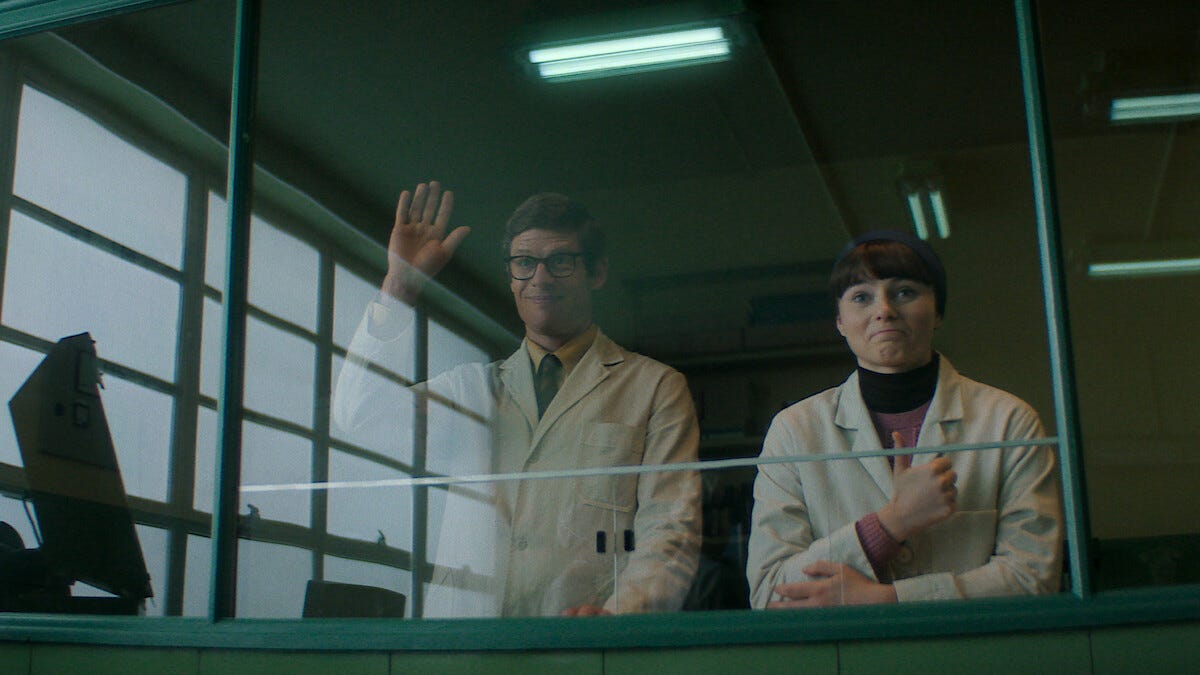TMS Movie Review: Joy
(Pathé / Netflix)
Ben Taylor’s new historical drama, Joy—not to be confused with David O. Russell’s own biopic with the same title from 2015—is a mildly frustrating watch. Its subject matter is fascinating [the invention of IVF] and it is well cast, yet feels like the film missed the mark. To be honest, I mostly chose this as my review for post-Thanksgiving week because I didn’t feel like going out to see Disney’s Moana 2 on top of holiday plans. I figured, hey, Joy has an interesting backstory, and Thomasin McKenzie and James Norton are fine enough leads. Why not?
From 1968 to 1978, Dr. Robert Edwards (Norton), a married family man; Nurse Jean Purdy (McKenzie), an independent young woman; and Dr. Patrick Steptoe (Bill Nighy), a surgeon on the verge of retiring, come together in Oldham, England to pursue the creation of the world’s first ‘test tube baby.’ Along the way to making history, the trio have to endure judgment and reluctance from colleagues, government, church and the media. Joanna Scanlan and Jemima Rooper co-star as Jean’s mother and Rob’s wife, while Rish Shah plays Jean’s co-worker and love interest.
(Pathé / Netflix)
Much like Steve McQueen’s Blitz and John Crowley’s We Live in Time, Joy is a British period piece that’s technically not bad, but still feels like it wasted some quality potential. With Taylor’s feature, a big problem is how great a character Jean is on paper. She’s the typical liberated woman of her era, participating in casual sex and a career in science, yet she’s also a practicing Christian who regularly goes to church. She believes in the cause she’s fighting for and thinks IVF should be an option for future mothers, but is reluctant to see abortion with the same perspective as well. She’s interested in romance and having children, yet still gets cold feet when Shah’s Arun proposes to her. Why? The film never answers these questions, nor delves into Jean’s viewpoint as a woman of both faith and medicine. Instead, Taylor and co. are too busy hitting every beat in the docudrama book to bother enlightening us; and even then, interesting topics like religion vs. science and nature vs. technology, feel stale instead of intriguing. Nighy and Norton give fine performances and the men they’re playing have impressive resumes in real life. But again, this should really be an in-depth study on Jean as a person and medical professional.
Unless you’re brand new to the history of test tube babies or a fan of the actors [particularly McKenzie, who continues to be consistently solid], Joy ultimately made me want a documentary on the real Jean Purdy instead.





